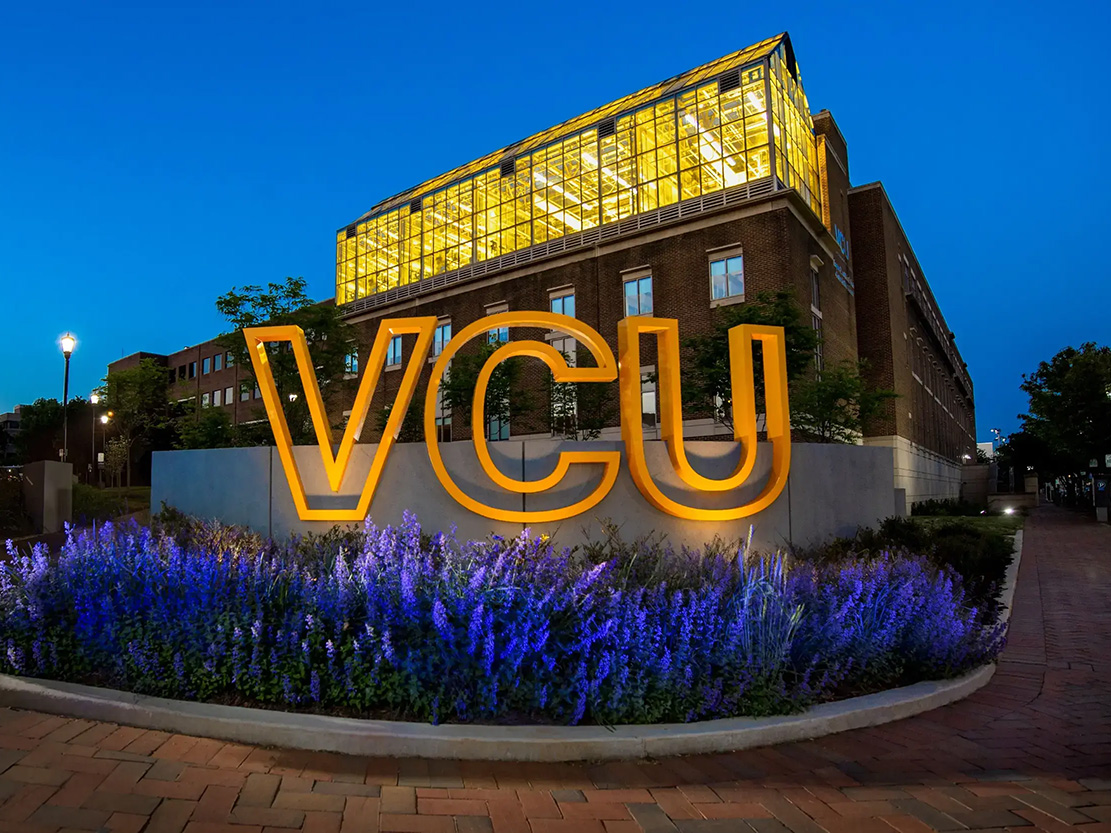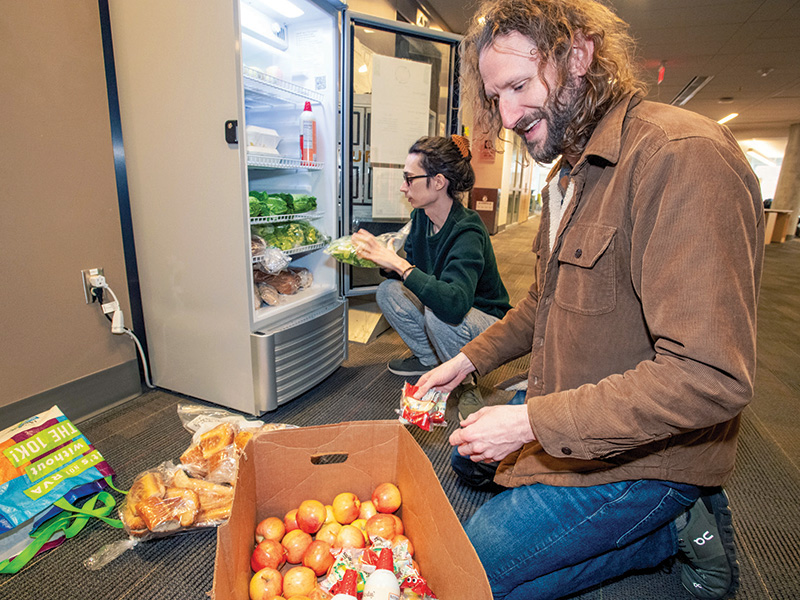News Highlights

Course explores American democracy through academic collaboration
As the United States approaches its 250th anniversary, VCU’s College of Humanities and Sciences launched an innovative course that brought together more than 30 faculty experts to examine American democracy from multiple perspectives. U.S. Democracy United/Divided featured specialists from history, political science, philosophy, English, mathematics, and science, with each class featuring a guest lecture that explored democracy through different academic lenses. The course originated when three associate deans began discussing what it means to be American, particularly as German-born Marcus Messner, Ph.D., went through the naturalization process and became concerned about the current political climate. “In that context, there’s a lot of loss of confidence in democracy,” Messner explained. “For me, that was the motivation to bring the best and the brightest in the college together.”
The course served as both an examination of democracy’s past and present challenges and a gateway for students from various academic backgrounds to engage with political concepts without committing to full-semester courses in each discipline. Nearly 100 students enrolled in the course in the spring and worked on group projects focused on strengthening democracy’s future, culminating in what Messner called a “mini-research symposium.” The course was such a success that it is running again in the 2025-26 academic year as a general education course.

Concentration in digital forensics propels graduate students into a growing field
The Department of Forensic Science launched a digital forensics and incident response concentration within its Master of Science in forensic science program for Fall 2025, becoming only the second such program in Virginia and one of few accredited digital forensic graduate programs nationwide. The two-year interdisciplinary curriculum combines computer science coursework with forensic science training, emphasizing hands-on laboratory experience and innovative technology to prepare students for careers in digital forensics.
Developed since 2022 in collaboration with the FBI, U.S. Attorney General’s office, Virginia Department of Forensic Science, and other regional partners, the program addresses the growing demand for qualified digital forensics analysts, as digital evidence is now a key component of nearly all investigations.
Students will gain expertise in foundational and advanced digital forensics concepts, evidentiary procedures, and legal considerations while completing an intensive research project. The curriculum is designed to meet Forensic Science Education Programs Accreditation Commission accreditation standards and will become eligible for accreditation after graduating two cohorts. “We’re really hoping to fill a need,” Tracey Dawson Green, Ph.D., chair of the Department of Forensic Science, said. “The need for this has been voiced by our partner agencies across Virginia and across the region. For years, they’ve been asking us for this ... so we’re very excited to see it come to reality.”

New School of Life Sciences and Sustainability
In March, The VCU Board of Visitors voted to establish a new School of Life Sciences and Sustainability (SLSS) within the College of Humanities and Sciences, effective July 1, 2025. The SLSS combines VCU Life Sciences and the Department of Biology into one unit and administers the biology, environmental studies, and bioinformatics degree programming. The VCU Rice Rivers Center, previously housed in the Office of the Provost, also moved into the SLSS.
Dean Catherine Ingrassia said the strategic combination “fosters interdisciplinary collaboration, enabling our faculty and students to address complex global challenges at the intersection of biological sciences and environmental sustainability.” The initiative emerged from the One VCU Academic Repositioning Task Force launched in May 2023 to enable greater innovation and efficiency in the university.
The first director of the SLSS is Rima Franklin, Ph.D., professor and former chair of the Department of Biology.
Additional Structural Changes
In April 2025, the Richard T. Robertson School of Media and Culture was renamed the Richard T. Robertson School of Communication in an effort to clarify its degree offerings.
Focused Inquiry, seminar-style classes for first- and second-year students as part of the general education curriculum, moved from University College into the College of Humanities and Sciences at the beginning of the 2024-25 academic year. The College of Humanities and Sciences established the Center for Global Religions and Spiritualities in the fall of 2024. The center focuses on the academic and transdisciplinary exploration of religion, spirituality, culture, history, and identity.

Ram Fridges make their debut on campus
In the fall, Ram Fridges began to appear on campus as part of a three-year, nearly $500,000 USDA grant to combat food waste and address student food insecurity. The project, which diverts unsold food from Shafer Court Dining Center to three refrigerators located in Cabell Library, Cary Street Gym, and the Trani Life Sciences Building, is the brainchild of Assistant Professor John Jones, Ph.D., in the School of Life Sciences and Sustainability. “In a lot of ways, VCU is really a small city,” said Jones. “We feed thousands upon thousands of people every week. Food that goes into the trash is really wasteful, [especially] when you consider how many VCU students deal with food insecurity.”
According to a 2023 study, 35% of VCU students experience food insecurity, while more than one-third of all U.S. food goes unconsumed through waste. Federal Work- Study students help maintain the fridges through safety inspections three times weekly, ensuring proper temperature and food safety guidelines are followed. Later this year, the plan is to add sensors, developed by a team at the College of Engineering, that track when and how often the fridges are being accessed as well as monitoring the temperature inside the fridges and alerting Jones and his team if refrigeration has been disrupted.